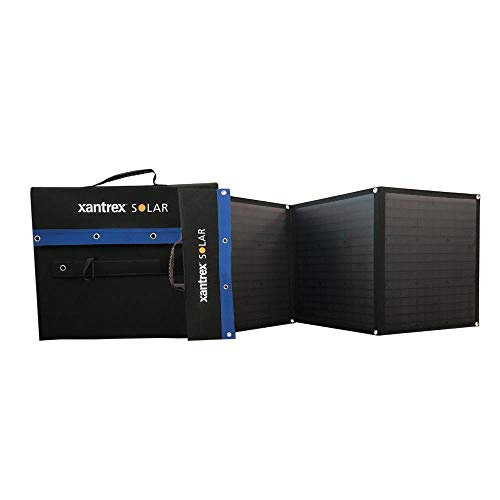Trebor English
Well-known member
Since the late summer of 2016 I have had a 12 volt trolling motor battery as the starter battery and house battery in my Ford Windstar. It was a Sams Club Duracell 24DCC group size 24 flooded deep cycle battery. It was $80 and lasted 4 years.
A month ago it died. It suddenly became an open circuit. Without X-rays or a full autopsy I don't know for sure but I think what happened is that there was corrosion of the plus side support structures due to over charging. The usual slow loss of capacity due to under charging and sulfation was not a problem. It didn't become a 10 volt battery with one cell shorted. It didn't run out of water due to lack of attention.
The cheap $15 PWM charge controller is set to 14.4 volts in winter, 14.2 in summer and 13.8 when I am going to be away from the van for an extended time. It brings the battery up to that voltage and holds it until the sun goes down. That is enough to keep the battery charged and then, by hydrolysis, make some gas requiring water addition. Between the specific gravity measurement and the water use I know the battery is regularly getting fully charged.
The bottom line is that my question about just one battery is answered. Yes, if your electricity use is low and you have a solar panel you can upgrade the starter battery and use that for starting and other things too. For $100 to $200 Amazon has several folding 80 to 100 watt solar panel systems. A rigid 100 watt panel and a PWM controller are under $100. That plus an $80 battery gets you electricity. Also use the battery for engine starting and your price can be very low.
I got the biggest battery that fit in the original location under the hood so I had no battery taking up space or making fumes inside. I did not go to Montreal in January as the deep cycle battery was lower in cranking amps. Actually, I haven't been to Montreal since 1961. It gets too cold there for me. I mostly stay in Florida where cranking amps aren't an issue. If you frequent cold places make sure your deep cycle battery has the capacity to start the engine in the winter. I don't intend to disparage Montreal. It's just that it is the coldest place I have actually experienced.
There is more description in a prior thread
https://vanlivingforum.com/showthread.php?tid=32307
It has been suggested on this forum and other places that I should get a lithium jump starter pack. I did not do that. Since the battery went open circuit, like it was removed, a jump starter pack would not have worked. Since I was over charging the battery this is the outcome I expected.
A month ago it died. It suddenly became an open circuit. Without X-rays or a full autopsy I don't know for sure but I think what happened is that there was corrosion of the plus side support structures due to over charging. The usual slow loss of capacity due to under charging and sulfation was not a problem. It didn't become a 10 volt battery with one cell shorted. It didn't run out of water due to lack of attention.
The cheap $15 PWM charge controller is set to 14.4 volts in winter, 14.2 in summer and 13.8 when I am going to be away from the van for an extended time. It brings the battery up to that voltage and holds it until the sun goes down. That is enough to keep the battery charged and then, by hydrolysis, make some gas requiring water addition. Between the specific gravity measurement and the water use I know the battery is regularly getting fully charged.
The bottom line is that my question about just one battery is answered. Yes, if your electricity use is low and you have a solar panel you can upgrade the starter battery and use that for starting and other things too. For $100 to $200 Amazon has several folding 80 to 100 watt solar panel systems. A rigid 100 watt panel and a PWM controller are under $100. That plus an $80 battery gets you electricity. Also use the battery for engine starting and your price can be very low.
I got the biggest battery that fit in the original location under the hood so I had no battery taking up space or making fumes inside. I did not go to Montreal in January as the deep cycle battery was lower in cranking amps. Actually, I haven't been to Montreal since 1961. It gets too cold there for me. I mostly stay in Florida where cranking amps aren't an issue. If you frequent cold places make sure your deep cycle battery has the capacity to start the engine in the winter. I don't intend to disparage Montreal. It's just that it is the coldest place I have actually experienced.
There is more description in a prior thread
https://vanlivingforum.com/showthread.php?tid=32307
It has been suggested on this forum and other places that I should get a lithium jump starter pack. I did not do that. Since the battery went open circuit, like it was removed, a jump starter pack would not have worked. Since I was over charging the battery this is the outcome I expected.





























































